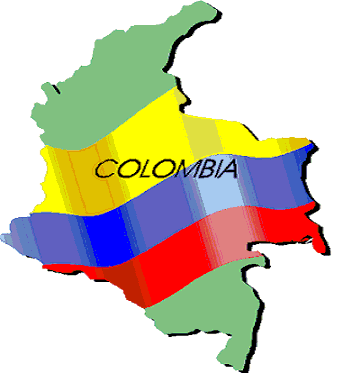Colombia remains mired in violence despite hostage releases
 Buenos Aires/Bogota - In Colombia's cycle of hostage dramas, good news is the exception, rather than the rule. But this week was different - full of celebrations, and a few tears, as six men were freed and reunited with their families.
Buenos Aires/Bogota - In Colombia's cycle of hostage dramas, good news is the exception, rather than the rule. But this week was different - full of celebrations, and a few tears, as six men were freed and reunited with their families.
Alan Jara, a former governor of the central Colombian province of Meta who was taken hostage on July 15, 2001, spoke of the irrevocable loss of missing his son Alan Felipe's growing years. When Jara was kidnapped, his son was just a child. He returned Tuesday to find Alan Felipe a strapping teenager. As Jara, 51, embraced his wife and son he found it hard to let go.
Colombia has been unable to find a way out of the violence and internal strife that has ripped the South American country apart for more than 40 years.
The released hostages had harsh words for conservative Colombian President Alvaro Uribe. Jara was particularly adamant in his claims that the government "simply did not help" release the hostages.
He urged the president to agree to a "humanitarian exchange" of 22 hostages for 500 imprisoned rebels, calling it an "urgent" matter. But Jara also agreed that such a change in tack by both Uribe and the leftist Revolutionary Armed Forces of Colombia (FARC) seemed unlikely.
"I'm going to say something perverse - it would seem that the state of war that we are living in suits President Uribe, and it seems that the rebels like to have Uribe in power," he said.
Both critics and supporters of the government say that this peculiar reciprocal dependency of the president and the rebels has been the main cause behind the stagnant peace process in Colombia.
Since Uribe, whose father was killed by FARC, became president for a first term in 2002, offers of talks with the rebels have sounded hollow.
However, Uribe did achieve undeniable successes with his policy of military crackdowns. Large swathes of the country, which no one dared enter without police protection seven years ago, are now safe again. The murder rate has fallen to a 30-year low and Colombia now reports the lowest number of kidnappings in 25 years.
The extreme-right paramilitaries have also been pushed back - many of them have demobilized, and people once again have the courage to take legal action against crime. Human rights violations by police or military officers are regularly reported and the justice system is being developed further.
But the fundamental problems caused by a lack of opportunities for social development for large sections of the population has resulted in a constant push of people into FARC's ranks. And the leftist rebels are not short of funds - they get a substantial income from drug trafficking.
Following Jara's strong criticism, the president emphasized that he has the country's interests and welfare at heart. He said he was ready to talk to FARC, but quickly added, "We are ready for peace, not for deceit. We are ready for a humanitarian exchange, not to strengthen terrorism."
Most Colombians back Uribe, who has a 70-per-cent approval rating, according to opinion polls. But they also see him as politically dependent on the conflict.
"Uribe is the best president for the state of war. Following a peace agreement he would not stand a chance," said a Bogota journalist. (dpa)